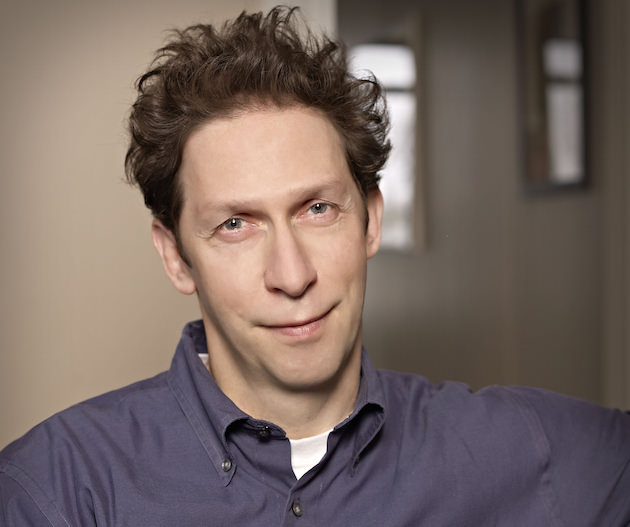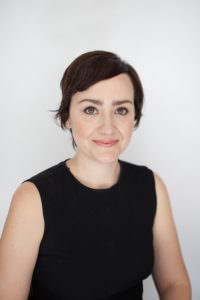Tribeca 2015: Tim Blake Nelson on Writing/Directing/Producing Anesthesia
Writer/director Tim Blake Nelson’s ensemble drama Anesthesia premiered Wednesday night at the Tribeca Film Festival. A fitting setting for the New Yorker’s latest film about the intersecting lives of erudite city-dwellers who are united by a violent crime. The film, which explores the different ways we attempt to numb our pain, was filmed on location in New York, with an impressive cast of mostly New York-based actors, including Glenn Close, Sam Waterston, Gretchen Mol, Kristen Stewart and Nelson himself.
Previously, Nelson’s most recent turn as writer/director was his 2009 Edward Norton comedy Leaves of Grass. We spoke to Nelson- a prolific actor, who is perhaps best known onscreen for his role opposite George Clooney in the Coen brothers’ O Brother, Where Art Thou?- about his latest project and why he was expecting it to be panned.

How do you feel now that your film is out in the world?
I’m quite relieved. To be frank, I thought I was going to get thrashed.
Why did you think that?
Because it’s so unapologetically literate. You know? I wrote really articulate characters.
You were expecting it to be labeled pretentious?
Yeah. [My characters] were unafraid to talk about ideas. And I also was borrowing, not intentionally borrowing, it was just the best way to meet the demands I set for myself when I wrote the script, but it fits into this sub-genre of ensemble movies with different storylines and people get snarky about that. And, I just thought it had too soft an underbelly. The response has been the opposite. I’ve been so gratified…this movie has garnered a better response so far than anything I’ve put out as a writer/director. So, it’s great, I feel very happy about that.
At the premiere you said it’s a film you had to make—can you elaborate on that?
I wanted to make a movie set in New York but I wanted to make it only when I was ready, and it has taken a long time but I’ve always yearned to do it. I don’t think you can write this kind of movie without having an intimate relationship with this city. For me that took living here, being married and raising a family here.
Going through different life stages?
I got to go to graduate school here. I got to have a courtship here. I got to marry that woman [Lisa Benavides] and now we’re raising children. It has taken me through all these different literal and figurative strata that the city so generously furnishes. Finally I felt I was ready to do it.
You mentioned that the characters have various facets of your own personality. Is there one particular character that you identify with the most? Adam, the character you play, perhaps?
Yeah, I think I play a character with whom I very much identify. I had once hoped that my wife, who is a professor but also an actor, would maybe play my wife in the movie, but she didn’t feel comfortable doing so. I’d written it maybe for her, but also with Jessica Hecht in mind, and so I gave it to Jessica and my wife said that she wanted to play the therapist, and so she just chose that role. I guess I aspire most to be the Zarrow character (Adam’s father, played by Sam Waterston), maybe with a little less of the complacency he wants to dispense of by retiring and trying something new. But there are aspects of me in every one of the characters. And I don’t mean that it terms of one’s divine control over a script, because you get to write it and control it all. It’s more because when I write a character I want to get inside the mind of the actor who’s going to play a character and make sure that there’s enough there for a performer to advocate for. And so, when I formulate a character’s argument and raison d’etre, I’m really getting inside them, so I know that what I’m giving to an actor is going to work for them.
You assembled an incredible cast, was there anyone that you just had to have particularly? Someone you had your eye on?
It’s like when you apply to colleges and you apply to a bunch of different colleges and you end up at one of them and it may not have even been your first choice but once you get to that college you can’t imagine being anywhere else. That’s what a great cast is. I can’t imagine this movie with anyone else playing anyone. I couldn’t. And not everyone was my first choice but knowing what I know now, they all would have been my first choices. And I’ve had plenty of roles where I was the second, third, or even fourth choice. I’ve played roles where the only reason I was in the movie is because they fired someone and I was the only one around with a pulse. I don’t have any issue with that.
Being the writer, director, actor and producer, is a pretty unique situation. How does one person straddling so many roles shape the end product?
If you’re afforded the space, and if you can summon the energy to do all the jobs as well as you can, it just makes the vision of the movie more cohesive. And, I think that’s ultimately what we want when we encounter any work, whether it’s a painting or a novel, a movie or a play, or a piece of music, we want to encounter a novel perspective and a unified vision. And so I gravitate towards writing, directing and producing because it allows me to make sure there’s coherence in every respect, because ultimately that’s going to make the movie better.
You’re dealing with some quite big questions about happiness, technology and fulfillment in life and there’s quite a philosophical strain throughout the film. Obviously while exploring these themes you still want it to be compelling to watch, how do you balance the big ideas with something that’s rooted in reality?
I always remind myself that before the ideas, before the animating themes, there has to be a story, a riveting story. That comes first. And when writing a piece, my most rigorous work and my most patient attention goes to making sure that every scene has an event. A concrete event, and that each of those events moves the story forward and if a scene doesn’t have that, I cut it. If a character isn’t essential to the plot, I cut that character. A long, patient revision process characterizes most of the time I spend writing. The first draft usually takes the least amount of time. It’s the subsequent drafts.
Having acted in so many movies yourself, what have you picked up along the way being on that side of the camera? Working with all sorts of different directors with different styles.
Every movie I’ve had the privilege of acting in helps me as a director and as a writer. There hasn’t been a single film where I haven’t learned something. Now of course working with some of the career luminaries like Steven Spielberg, the Coens and Terrence Malick, one of my first movies was with Mike Newell, my very first movie was with Nora Ephron, some influence me more than others but I learn literally from everyone. I find myself even on indie film sets with first time directors thinking, My God, I never would have thought of that. I love that the scene is being shot this way. And I carry all of those experiences with me because I didn’t choose to attend film school. I went to acting school. So, my film school has been with all of these incredible directors and also being around extraordinary performers. Working with Sean Penn, George Clooney and John C. Reilly, none of whom I’ve directed but with whom I’ve acted. Reilly and I have been in a couple of movies together, George and I have been in a couple of movies together. I’ve become a better director and a better actor by being around people like that.
What’s up next for you?
I’m doing reshoots for Fantastic Four next week, and that comes out in August. I’m about to go and do a movie [The Long Home] with James Franco in Ohio, our seventh collaboration…I’m writing a new script and I have two other scripts ready to go. Hopefully I’m going to make this new one or one of the other ones that are waiting to get made, hopefully next year. And I did a TV pilot [For Justice] for Robert De Niro and Rene Balcer, that Ava DuVernay directed, and if that gets picked up I suppose it will occupy a lot of my time over the next several months.
You obviously like that balance between the acting projects and directing?
I do and I like trying out different media and different styles of storytelling. As long as there’s a singular vision. I don’t want to do just anything.
Finally, what is your favorite New York movie?
Crimes and Misdemeanors.



